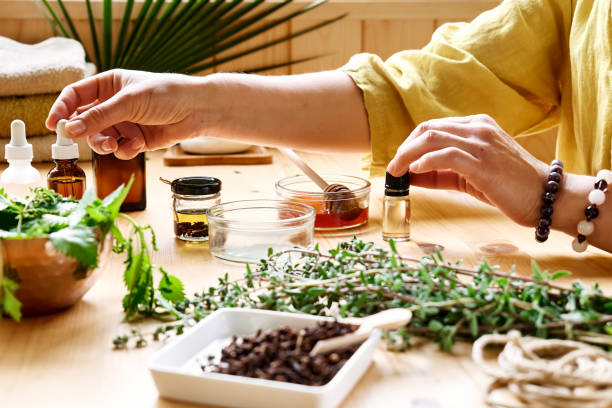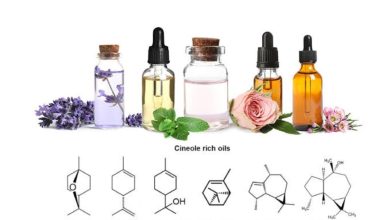Top 21 Natural Remedies For Autoimmune Disease And Inflammation

Autoimmune diseases and inflammation are closely related medical conditions that have a significant impact on the immune system and overall health. Autoimmune diseases occur when the body’s immune system mistakenly attacks its own healthy cells, tissues, and organs as if they were foreign invaders. This inappropriate immune response leads to chronic inflammation, a complex biological process that is the body’s natural defense mechanism against infections and injuries. However, in the context of autoimmune diseases, this inflammatory response becomes prolonged and often damages the body’s own tissues and organs, leading to a range of debilitating symptoms.
The exact cause of autoimmune diseases is not fully understood, but a combination of genetic predisposition and environmental factors seems to play a role. These conditions can affect various parts of the body, including the joints, skin, muscles, organs, and nervous system. Examples of autoimmune diseases include rheumatoid arthritis, lupus, multiple sclerosis, and type 1 diabetes. Symptoms can vary widely depending on the specific disease but often include fatigue, joint pain, skin rashes, and neurological problems.
Inflammation is a normal part of the body’s immune response, involving a series of chemical signals and white blood cell activation to combat harmful substances or repair damaged tissues. However, in autoimmune diseases, the immune system mistakes healthy cells for foreign invaders, leading to the release of pro-inflammatory cytokines and other immune mediators that perpetuate the inflammatory response. As a result, chronic inflammation can cause damage to healthy tissues over time, leading to tissue destruction, scarring, and impaired organ function.
Treating autoimmune diseases often involves managing inflammation to reduce symptoms and prevent further tissue damage. Natural remedies have gained popularity for their potential to reduce inflammation and support the immune system. In this article, we will explore 21 natural remedies that may aid in managing autoimmune diseases and inflammation.
What are natural remedies?
Before delving further we need to understand natural remedies, how they work, and why they are gaining popularity globally. Natural remedies are alternative approaches to healthcare that involve using natural substances and techniques to promote health and well-being. These remedies have been used for centuries in various traditional medicine systems and are gaining popularity due to their potential benefits and minimal side effects. Here are three categories of natural remedies commonly used:
- Herbal Remedies: Herbal remedies involve using plant-based substances, such as herbs, roots, leaves, and flowers, to treat various ailments. Different herbs possess specific properties that can have beneficial effects on the body. Herbal teas, tinctures, and topical applications are common ways to administer these remedies.
- Nutritional Supplements: Nutritional supplements are natural substances that complement the diet and provide essential vitamins, minerals, and other nutrients. These supplements are available in various forms, including capsules, tablets, and powders.
- Mind-Body Techniques: Mind-body techniques focus on the connection between the mind and body to promote overall health. These techniques have been shown to help manage stress-related conditions, reduce inflammation, and enhance overall quality of life.
Top 21 Natural Remedies For Autoimmune Disease And Inflammation
The following natural remedies have been found to be effective in the management of autoimmune disease and inflammation symptoms:
- Turmeric: Turmeric, a vibrant yellow spice commonly used in Indian cuisine, has gained significant attention for its active compound called curcumin. Curcumin is known for its powerful anti-inflammatory properties, making it a popular natural remedy for managing inflammation in various conditions, including autoimmune diseases. Studies have shown that curcumin can inhibit certain molecules involved in the inflammatory response, effectively reducing inflammation and alleviating symptoms like pain and swelling. Moreover, curcumin’s antioxidant properties help protect the body’s cells from damage caused by free radicals, further contributing to its anti-inflammatory effects. Turmeric can be incorporated into the diet by adding it to curries, smoothies, or as a supplement in the form of capsules or extracts.
- Ginger: Ginger, another well-known spice with a long history of medicinal use, contains bioactive compounds like gingerol and shogaol, which have potent anti-inflammatory properties. Ginger’s ability to reduce inflammation can be particularly beneficial for individuals with autoimmune conditions, where chronic inflammation plays a central role in disease progression. Research suggests that ginger can inhibit various pro-inflammatory pathways in the body, thereby helping to alleviate symptoms and improve overall well-being. Ginger can be consumed fresh, as a tea, or in supplement form, and it is often used to relieve digestive issues, muscle pain, and joint discomfort associated with inflammation.
- Omega-3 fatty acids: Omega-3 fatty acids are essential fats that are primarily found in fatty fish like salmon, mackerel, and sardines, as well as in plant sources like flaxseed and chia seeds. These fatty acids have been extensively studied for their anti-inflammatory effects, and they are particularly beneficial for individuals with autoimmune diseases, where inflammation is a common feature. Omega-3s can help reduce the production of pro-inflammatory molecules and promote the synthesis of anti-inflammatory compounds. Incorporating fatty fish or plant-based sources of omega-3s into the diet or taking fish oil or flaxseed oil supplements can be effective in supporting immune system balance and reducing inflammation.
- Probiotics: Probiotics are beneficial bacteria that support a healthy gut microbiome, which is essential for immune function and overall well-being. Research suggests that a balanced and diverse gut microbiome can help reduce inflammation in the body. Probiotics can help modulate the immune system, reduce the production of inflammatory markers, and strengthen the gut barrier to prevent the leakage of harmful substances into the bloodstream. By promoting gut health, probiotics may alleviate symptoms of autoimmune diseases and inflammation. Probiotics are commonly found in fermented foods like yogurt, kefir, kimchi, and sauerkraut, or they can be taken as supplements.
- Vitamin D: Vitamin D, often referred to as the “sunshine vitamin,” is crucial for immune system regulation. Adequate vitamin D levels are essential for immune cells to function optimally, and deficiency has been associated with an increased risk of autoimmune diseases. Supplementation with vitamin D may be beneficial for individuals with autoimmune conditions, as it can help regulate the immune response and reduce inflammation. Moreover, vitamin D plays a role in maintaining bone health and overall well-being. While sunlight is a natural source of vitamin D, dietary sources like fatty fish, fortified foods, and vitamin D supplements are available for those who have limited sun exposure or difficulty absorbing the vitamin through their diet.
- Boswellia: Boswellia, also known as Indian frankincense, is a resin obtained from the Boswellia serrata tree. Traditionally used in Ayurvedic medicine, Boswellia extract has gained attention for its potent anti-inflammatory properties. It contains boswellic acids, which have been shown to inhibit enzymes that promote inflammation in the body. This action can help manage autoimmune symptoms and reduce joint pain in conditions like rheumatoid arthritis. Boswellia supplements are available in various forms, including capsules and topical creams, and they are often used to support joint health and manage inflammatory conditions.
- Licorice root: Licorice root, derived from the Glycyrrhiza glabra plant, has been used in traditional medicine for its anti-inflammatory and immune-modulating properties. Licorice contains compounds like glycyrrhizin and flavonoids, which have demonstrated anti-inflammatory effects by inhibiting certain enzymes and reducing the production of pro-inflammatory molecules. Additionally, licorice root may support adrenal health by helping to regulate cortisol levels and manage stress, which can impact immune function and inflammation. Licorice root can be consumed as a tea, in the form of capsules or extracts, or applied topically to soothe skin inflammation.
- Green Tea: Green Tea, a popular beverage worldwide, contains a potent bioactive compound known as epigallocatechin gallate (EGCG). EGCG has been extensively studied for its anti-inflammatory effects, which may hold promise in benefiting individuals with autoimmune conditions. Studies have shown that EGCG can inhibit inflammatory pathways and reduce the production of pro-inflammatory molecules. Regular consumption of green tea has been associated with a lower risk of certain autoimmune diseases and may help alleviate symptoms of inflammation, such as joint pain and swelling.
- Resveratrol: Resveratrol, a natural compound found in grapes, berries, and red wine, has gained attention for its potential anti-inflammatory and antioxidant properties. Research suggests that resveratrol can help reduce inflammation by inhibiting certain inflammatory enzymes and signaling pathways in the body. Additionally, its antioxidant properties protect cells from oxidative stress, which can contribute to inflammation. While the exact impact of resveratrol on autoimmune diseases requires further investigation, incorporating a diet rich in fruits and berries may support overall health and potentially contribute to managing inflammation.
- Aloe Vera: Aloe Vera, a succulent plant with a gel-like substance in its leaves, is well-known for its soothing and anti-inflammatory properties when applied topically. Aloe vera gel can help reduce redness, swelling, and discomfort associated with skin inflammation, making it a popular natural remedy for sunburns, rashes, and other skin irritations. While aloe vera may not directly affect systemic inflammation in autoimmune conditions, its topical application can provide relief for localized inflammatory issues.
- Echinacea: Echinacea, a herb native to North America, has been traditionally used to support the immune system and may have immune-modulating effects. While evidence is mixed regarding its direct impact on autoimmune conditions, echinacea’s ability to support immune function could be beneficial in certain cases. It is often used to help prevent or manage upper respiratory infections, which can be exacerbated in individuals with autoimmune diseases due to compromised immune responses.
- Ashwagandha: Ashwagandha, an adaptogenic herb widely used in Ayurvedic medicine, may offer benefits for reducing stress and inflammation. Chronic stress can exacerbate autoimmune conditions by promoting inflammation in the body. Ashwagandha has been studied for its stress-reducing effects and its potential to modulate the body’s stress response. By helping the body cope with stress more effectively, ashwagandha may indirectly contribute to managing inflammation and supporting overall well-being in individuals with autoimmune diseases.
- Cat’s Claw: Cat’s Claw, a woody vine native to South America, contains compounds that have been found to possess anti-inflammatory properties. Cat’s claw extract may help alleviate joint pain and inflammation, making it potentially useful for individuals with autoimmune arthritis conditions like rheumatoid arthritis. Some studies suggest that cat’s claw may also support the immune system by modulating certain immune responses, which could be relevant in autoimmune conditions.
- Bromelain: Bromelain is a natural enzyme derived from pineapple stems and fruit. It has demonstrated anti-inflammatory effects, particularly in the context of reducing swelling and inflammation after injuries or surgeries. While its direct impact on autoimmune diseases requires further research, bromelain’s anti-inflammatory properties may aid in symptom relief and complement other treatments.
- Berberine: Berberine is a compound found in various plants, including goldenseal, Oregon grape, and barberry. Studies have shown that berberine has potential anti-inflammatory and immune-modulating properties. It may inhibit certain inflammatory pathways and modulate the immune response. While more research is needed to understand its specific effects on autoimmune diseases, berberine’s natural anti-inflammatory properties make it an interesting area of study for potential therapeutic use.
- Feverfew: Feverfew is an herb commonly used in traditional medicine for its potential to reduce inflammation, particularly in cases of headaches and joint pain. It contains compounds like parthenolide that have anti-inflammatory properties. Feverfew has been historically used to alleviate migraines and headaches, possibly by inhibiting the release of certain chemicals that trigger inflammation and pain. Additionally, it may have a positive impact on joint health and mobility, making it a potential natural remedy for individuals with inflammatory joint conditions like arthritis.
- Stinging Nettle: Stinging Nettle, also known as nettle leaf, is another herbal remedy with anti-inflammatory properties. Nettle leaf extract may help reduce inflammation and support joint health. It contains compounds that can interfere with inflammatory pathways, potentially reducing pain and swelling in joints affected by inflammation. Some studies have shown promising results in using nettle leaf supplements or creams to manage symptoms of arthritis and other inflammatory joint conditions. However, further research is needed to fully understand its effectiveness and safety.
- Quercetin: Quercetin is a flavonoid found in various fruits and vegetables, such as apples, berries, and onions. It is known for its antioxidant and anti-inflammatory effects. Quercetin can neutralize free radicals, which are molecules that cause oxidative stress and inflammation in the body. By reducing oxidative stress and inflammation, quercetin may have beneficial effects on overall health and may complement other natural remedies for autoimmune diseases and inflammation.
- Massage therapy: Massage therapy is a hands-on approach that involves manipulating muscles and soft tissues to promote relaxation and alleviate pain. Regular massage therapy may help reduce inflammation by increasing blood circulation, releasing muscle tension, and improving lymphatic drainage. These effects can help reduce swelling and improve the body’s natural ability to heal from inflammation. Additionally, massage therapy can promote relaxation and reduce stress, which can further contribute to managing inflammation and enhancing overall well-being.
- Mind-body techniques: Mind-body techniques encompass a range of practices, including meditation, yoga, and deep breathing exercises. These techniques aim to address the mind-body connection and help manage stress, which can play a significant role in inflammation and autoimmune diseases. Meditation and deep breathing can activate the body’s relaxation response, reducing the production of stress hormones that can trigger inflammation. Yoga combines physical postures, breathing exercises, and meditation, providing a holistic approach to managing stress and inflammation.
- Sleep: Sleep and rest are essential for maintaining a healthy immune system and managing inflammation. During sleep, the body undergoes crucial repair and rejuvenation processes. Insufficient or poor-quality sleep can lead to increased inflammation and a weakened immune system, making it important to prioritize sufficient rest. Chronic sleep deprivation has been linked to an increased risk of various health conditions, including autoimmune diseases. Ensuring adequate and restorative sleep is crucial for supporting overall health and managing inflammation effectively.
While natural remedies may complement traditional medical treatments, they should not be used as a replacement. Autoimmune diseases and chronic inflammation are complex conditions that require a comprehensive approach. Always consult with a qualified healthcare professional before incorporating any natural remedies into your treatment plan. With the right combination of conventional medicine, lifestyle adjustments, and natural remedies, individuals may find relief from symptoms and improve their overall well-being while living with autoimmune diseases and inflammation.





